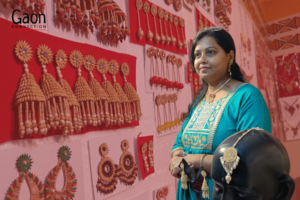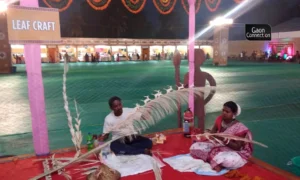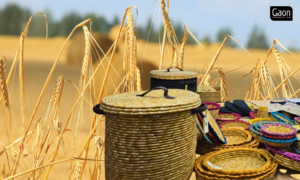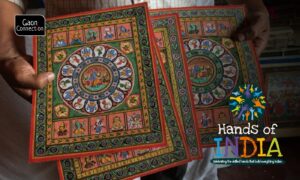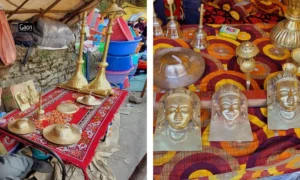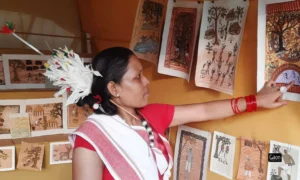Shunglipora (Budgam), Jammu & Kashmir
Clad in a grey pheran, and surrounded by pieces of wood and carpentry tools, is Ali Mohammad Najar. An unfinished samovar stands by his side, waiting for him to give it its final avatar.
“I make plates, cups, serving spoons, trays and the samovars we use to make the traditional Kashmiri tea, all out of wood. My father taught me and I have been doing this since I was 14 yeas old,” the 49-year-old carpenter told Gaon Connection.
Najar lives and works in Shunglipora village in Budgam district of Jammu & Kashmir, about 60 kilometres away from Srinagar. It is a beautiful village amidst green meadows and surrounded by breathtaking mountains covered in snow.
Najar’s father was a skilled Kashmiri artisan and he managed to pass on some of those skills to Najar before he passed away in 1993.
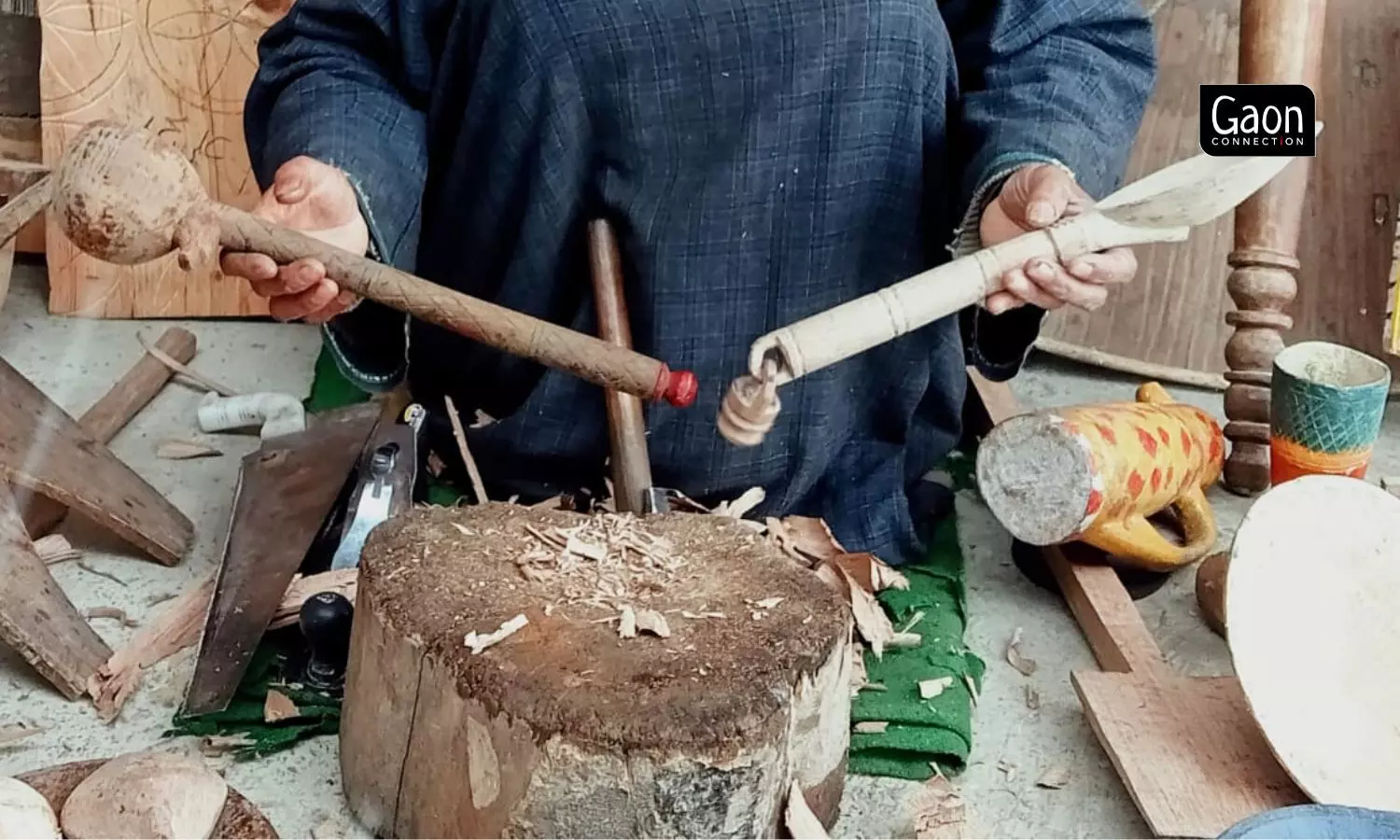
“I was still very young when my father died and left the responsibility of looking after the family to me. Carpentry was how we earned our livelihood and I taught it to my three younger brothers as well,” he said.
Also Read: Reviving the Kashmiri Craft of Namda Making
Though Najar now also works as a labourer and repairs the roofs of homes in the winter months to keep his home fires burning, he reminisced about the time when he used to be busy the whole day making traditional wooden kitchenware.
“I used to make wooden slates which were used by kids back then to write their school work but now papers have replaced the slates. Similarly, utensils made of other materials are replacing the wooden ones,” the artisan said.
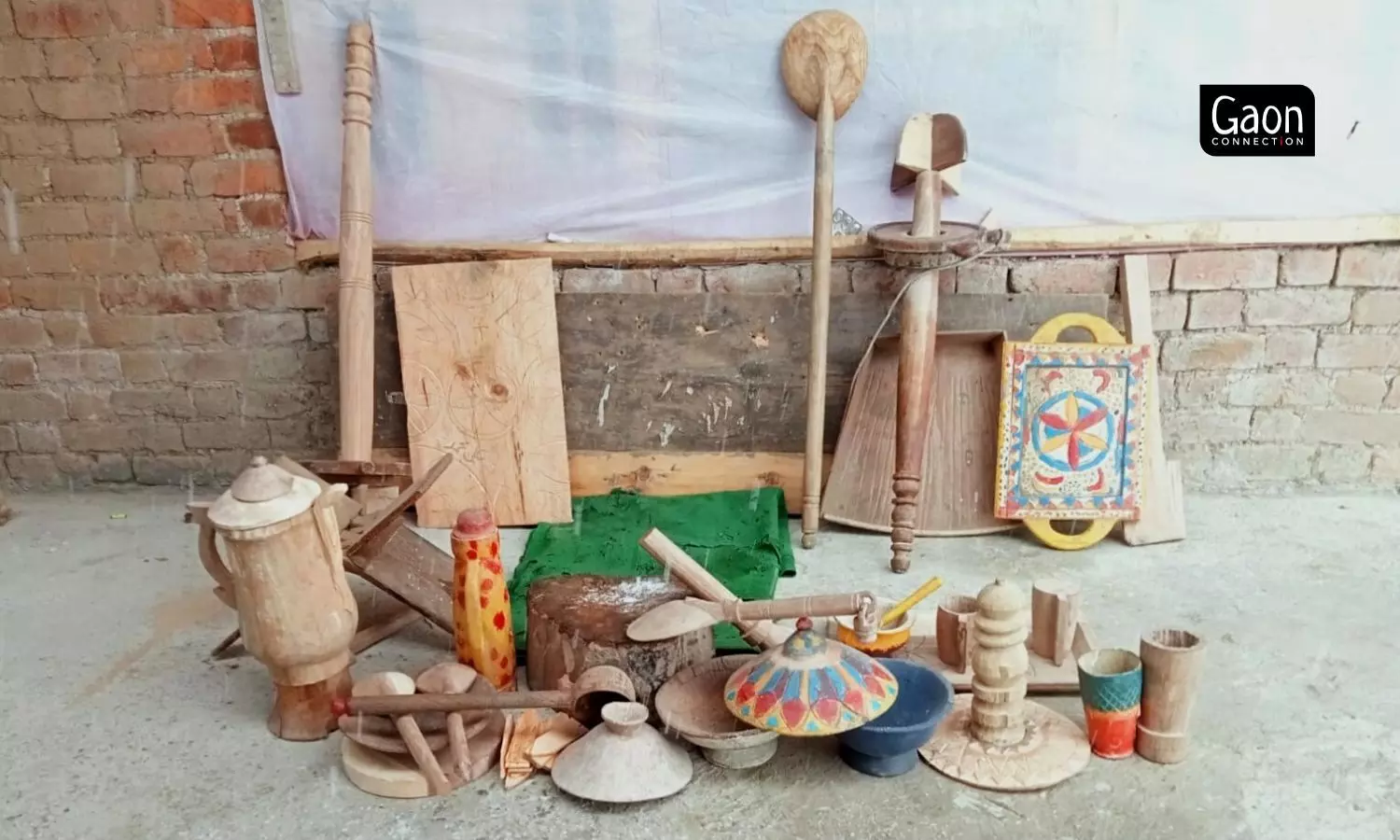
Najar makes plates, cups, serving spoons, trays and the samovars used to prepare traditional Kashmiri tea, all out of wood.
“I make these in my spare time and sell them at the market. There is not much demand for them and technology has made handmade plates and spoons redundant,” he said sadly. Pointing to the unfinished samovar, Najar said, “It takes me weeks to make a samovar and at the end of all the work, I only get about Rs 3,000 for it.”
Also Read: Kashmiri carpet weavers burn the midnight oil to weave silk kaleens for the new Parliament building
Difficult to survive on the craft alone
While Najar has earned considerable repute as a skilled artisan, he said it was no longer feasible for him to make it his sole source of livelihood.
“I have seven daughters and a son. This job does not pay me enough to feed them. So I also work as a labourer,” he explained. “Honestly speaking, I still continue to make the wooden utensils only because my son, who is studying in the 12th standard, is showing interest in it. Otherwise there is no reason I should continue,” the craftsman said.
“I don’t want my kids to rely on this work and instead of feeling happy that my son is very keen to learn this art, it makes me scared,” he said.
Also Read: Beating the cold with handmade coal in Kashmir
Najar does have admirers for his work. “In 2019, before the abrogation of Article 370 some Americans came to meet me and bought some of these utensils. This art has given me recognition and I am grateful for that,” he said. But he is sad the government has not come forward to recognise his craft, or appreciate the fact that despite all the troubles, he has kept the traditional craft alive.
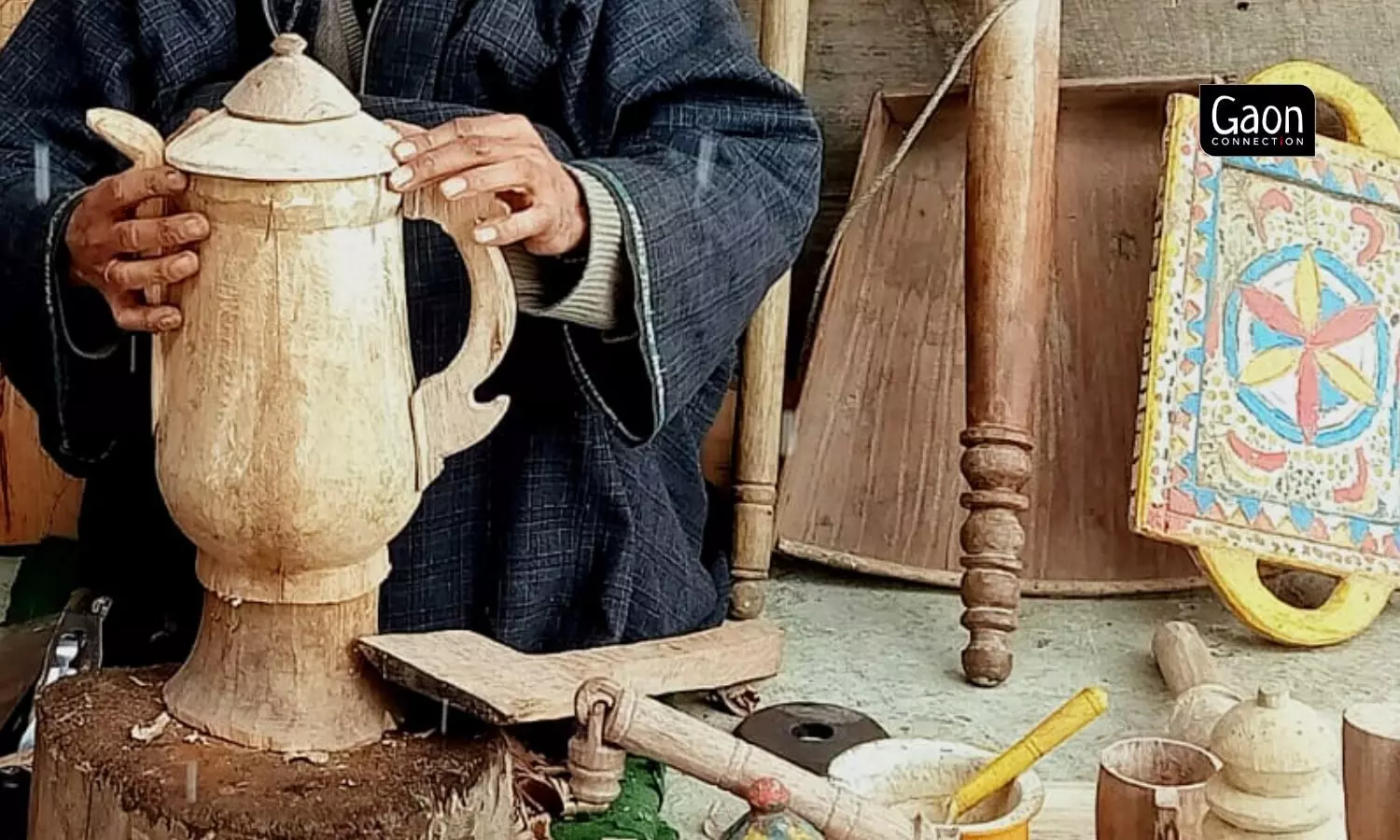
“The fact that I have no acknowledgement from the government by way of awards or certificates or even a letter of appreciation, brings my morale down,” he said.
Mohammad Rasool, a driver from the same village is a great admirer of Najar. “People from adjacent areas admire Najar’s work and whenever I see people travelling to our village I know they are going to visit Najar’s home. Journalists have written about him and I love to watch how he creates these beautiful pieces of art with his hands,” Rasool told Gaon Connection. “It’s because of him people recognise our area today,” he smiled.
Najar said there were many young people who came to him, wanting to learn the craft from him. “But I have neither the time nor the resources to teach them. But, if the government will open a craft centre in my village I will happily teach these youngsters this art. Nothing would make me happier than to see this art flourish and stay alive,” he concluded.
Gaon Connection contacted Mehmood Ahmed Shah, Director Handicrafts, based in Srinagar, several times to get his views on the matter, but he was unavailable for comment.







